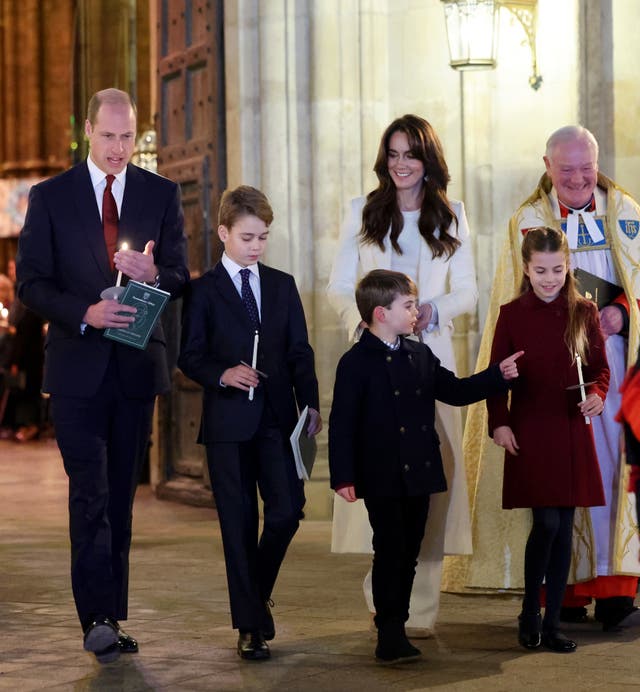The Princess of Wales’ decision to speak about her cancer treatment appears to have prompted a surge of visits to the websites of cancer charities and the NHS.
Kate received widespread praise for her cancer announcement and Macmillan Cancer Support said online traffic to its information and support pages was the highest weekend figure since the first Covid-19 lockdown.
Gemma Peters, Macmillan’s chief executive, said: “In sharing her news, the Princess of Wales has raised awareness of these worries and will be helping to encourage others who have concerns, to visit their GP and seek support.
“Many will be relating to the Prince and Princess of Wales at this time.”
Between Friday evening – when Kate’s video message was released – and Sunday, there was close to 100,000 visits, 10% higher than this time last year.
The same pages were visited almost 50,000 times in a single day, Macmillan said.
According to Macmillan, more than 1,000 people are diagnosed with cancer every day, the equivalent to one person every 90 seconds.
The figures from the charity come after Cancer Research UK spoke of a similar “uplift” in traffic for its website.
NHS England also reported a significant spike in visits to its cancer page online following the announcement.

Kate’s voice broke with emotion at times during her video message which received a global outpouring of support, including from the King, the Duke and Duchess of Sussex, political figures and members of the public.
Charles has also been open about his cancer diagnosis and his earlier decision to publicise his treatment for an enlarged prostate boosted visits to the NHS website.
Dr Ian Walker, Cancer Research UK’s executive director of policy told the PA news agency: “We see significant increase in uplift in terms of the number of people that visit our website for health information after these types of announcements.”
He added that “high-profile cancer cases” like those of Charles and Kate “can act as a prompt to encourage people to find out more”.
“I think for anyone – being open and talking about cancer diagnosis can have a positive effect. It encourages people to find out more and to think about their own health,” he said.
William and Kate are on an Easter school break with their children who have been their focus for the past few weeks.
The couple have taken the time to sensitively share the positive cancer test with the young royals, giving them time to process the information.
Ms Peters added: “Some of the first thoughts parents have after being diagnosed with cancer are how it may affect their children and whether talking to them about it will make them worry, but it is important to give them the chance to talk openly about their fears.”
NHS England said in the 24 hours after the news broke, there were 2,840 visits to its website’s cancer page, almost five times higher than the same period a week earlier.
Traffic to the NHS page on cancer symptoms also attracted 4,172 visits in the three hours after the video was released, an average of one every three seconds.
Professor Peter Johnson, NHS England’s national clinical director for cancer, said: “Receiving a cancer diagnosis can be very daunting – it turns your life upside down and speaking about it can be really difficult for people – the Princess of Wales bravely speaking out about her diagnosis will help others to do the same.
“Thanks to this, we have seen a spike in people visiting vital information on our website about signs and symptoms – there is no doubt that talking about cancer saves lives if it encourages people to come forward sooner if things aren’t right.”




Comments: Our rules
We want our comments to be a lively and valuable part of our community - a place where readers can debate and engage with the most important local issues. The ability to comment on our stories is a privilege, not a right, however, and that privilege may be withdrawn if it is abused or misused.
Please report any comments that break our rules.
Read the rules here